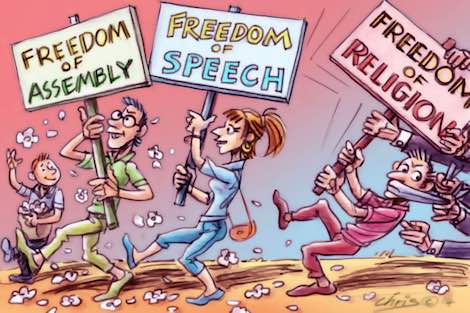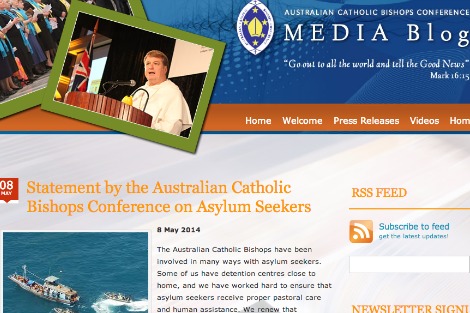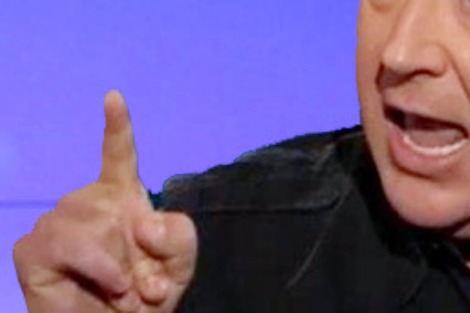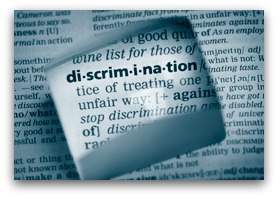Keywords: Anti-Discrimination
-

RELIGION
- Frank Brennan
- 04 December 2015
1 Comment
'Tonight, gathered here in the Southern Cross Club in the national capital, gathered as Eureka's children. We affirm that there is room for everyone under the Southern Cross. I hope you will return to Canberra carrying the Southern Cross flag when we proclaim the Australia Republic on 1 January 2020 which will be two elections after Australia last had a monarchist leader of a major political party. Tony Abbott is the last of his type. Whether the prime minister honoured to witness the proclamation is Malcolm Turnbull, Bill Shorten or another matters not.' Annual Dinner for Eureka's Children, Southern Cross Club, Canberra, 3 December 2015.
READ MORE
-

RELIGION
- Frank Brennan
- 30 November 2015
6 Comments
'No one doubts the pastoral sensitivity of Pope Francis. But the Church will continue to suffer for as long as it does not engage in open, ongoing discussion and education about the issue of women's leadership. The official position is no longer comprehensible to most people of good will, and not even those at the very top of the hierarchy have a willingness or capacity to explain it.' - Fr Frank Brennan SJ outlines five challenges and opportunities for the Catholic Church in the 21st century.
READ MORE
-

RELIGION
- Frank Brennan
- 27 November 2015
2 Comments
'The crisis of child sexual abuse in our societies has required that our institutional procedures be more transparent and that we learn from the ways of the world in exercising power openly and justly. This means we have to restructure some of our church arrangements so that power is exercised accountably and transparently. All of us who have positions of influence and power in institutional churches need to be attentive to the voices of those who have suffered within our institutions.' 'Discerning the place for the prophetic voice and pragmatic cooperation of the churches in the great moral questions of the age', address to the Association of Practical Theology in Oceania conference, 26 November 2015.
READ MORE
-

RELIGION
- Kevin Donnelly
- 03 November 2014
29 Comments
Unlike France, Australia's Constitution specifically accepts the place of religion in the broader society, with its reference to Almighty God in the Preamble. Its only stipulation is that governments should not privilege one religion over another, or unfairly discriminate. Moreover, our legal system and institutions might be secular in nature, but they draw heavily on Christian ethics and morality.
READ MORE 
-

AUSTRALIA
At a time when we are preoccupied with the shock and immorality of the budget, the Australian Catholic Bishops issue a direct and forceful challenge to current government policy. 'The time has come to examine our conscience.' But it seems no-one is listening.
READ MORE 
-

AUSTRALIA
- Michael Mullins
- 10 March 2014
9 Comments
The Federal Government plans to change the Racial Discrimination Act to give preference to free speech over protecting individuals and groups from vilification. It is not surprising that there is strong media support for the changes, as they will give investigative reporters and shock jocks alike the legislative freedom they need to do their job. But the Government must include robust legislation to penalise those who get their facts wrong.
READ MORE 
-

RELIGION
- Frank Brennan
- 08 November 2013
1 Comment
'Many Catholics wonder how we can maintain our Christian faith at this time in the wake of the sexual abuse crisis and the many judgmental utterances about sexuality and reproduction. The Church that has spoken longest and loudest about sex in all its modalities seems to be one of the social institutions most needing to get its own house in order.' Frank Brennan's address to the Yarra Institute for Religion and Social Policy, 8 November 2013.
READ MORE
-

RELIGION
- Frank Brennan
- 18 March 2013
3 Comments
Change is upon the Church. Just recall the scene when the new pope emerged on the Vatican balcony. He appeared with none of the papal trimmings of office, and did not once did he refer to the papacy. Could something of this new papal style help Catholics engage more creatively with their fellow citizens? Text from Frank Brennan's lecture 'How Can the Catholic Church Contribute to a Better Culture for Life?'
READ MORE
-

EDUCATION
- Luke Williams
- 04 March 2013
56 Comments
She was in year nine when people started to suspect she was gay. At that time a lesbian teacher at her Catholic school 'was kicked out' and 'people targeted me even more'. State intervention in religion might be undesirable, but too many religious groups respond to the discrimination debate with rights-based arguments that lack empathy.
READ MORE 
-

AUSTRALIA
- Frank Brennan
- 19 February 2013
34 Comments
There has been some very confused debate about the Government's proposed consolidation of anti-discrimination laws. David Marr claimed leaders of 'conservative faiths' were free to 'kick poofters, lesbians, single mothers, people in de facto relationships'. He needs to take a cold shower while we clarify these issues.
READ MORE 
-

AUSTRALIA
- Moira Rayner
- 25 January 2013
21 Comments
Anti-discrimination acts are meant to protect vulnerable people, not corporations or dominant ideologies. The employers I represent reap the benefits of understanding that diversity and inclusion are brilliant for business and productivity. The Government's new human rights consolidation bill has missed simple opportunities for real improvement.
READ MORE 
-

RELIGION
- Frank Brennan
- 17 October 2012
1 Comment
Full text from Fr Frank Brennan SJ's address 'Advancing human rights in Australia — lessons from the National Human Rights Consultation' at the 'Human Rights Matters!' conference marking Anti-Poverty Week 2012. 17 October 2012, Cardinal Knox Centre, St Patricks Cathedral, Melbourne.
READ MORE